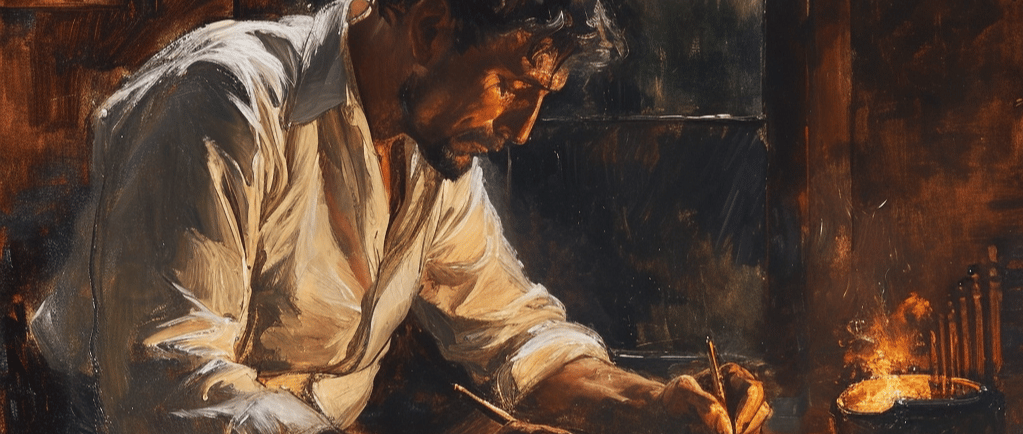What's the point of writing when all the stories have been written?
Just about all stories boil down to a few fundamental plots. Yet we keep coming back for more.
LITERATURE


I ask this question a lot. The older you get the more of the world you see. The more of the world you see, the more you realize that Ecclesiastes 1:9 is painfully true.
“What has been will be again, what has been done will be done again; there is nothing new under the sun.”
It’s especially true when it comes to fiction… actually, it’s true when it comes to everything. History seems to be a never-ending repetition of the same things playing out over and over again. War, plague, rise, fall, life, death, all of these things happen over and over again. Inflation is a fun one. Inflation has been happening since the dawn of currency. It happens every damn time, yet everyone is always surprised to see it show up again. Ancient Rome, Medieval Europe, the Weimar Republic, Venezuela, Argentina, and even the U.S. It all happens over and over again.
I don’t want to talk about history though for the purposes of this post. What I want to talk about is the stories. When you distill a fictional work down, all the fluff boils off and you’re left with the same fundamental story. Or rather, you’re left with one of several. At the very basis of it all, someone or something did someone or something. Abstracting that up a bit and you can get the classic setup, the rising action, the climax, the falling action, and the resolution structure. We could talk about this for hours. The Hero’s Journey is a classic example.
The journey starts with a call to adventure, an encounter with the wise mentor, facing the dangerous enemy, and then finally transformation. The hero returns changed from when the hero left. You see this story all over the place. Need a few examples? Take Star Wars. You have R2-D2 and C3PO calling Luke to action. Luke is mentored by a wise Obi-Wan Kenobi. He faces the empire. He uses the force to save the day and he returns as a hero. Take the Lion King. Simba runs off after Mufasa dies at the hands of Scar. Act one is all about setting the story up. In act two, Nala calls Simba to action by informing him of how bad Scar has made things. Rafiki acts as Simba’s wise mentor to encourage him to accept his destiny and return to the Pride Lands. In act three, Simba returns, he confronts Scar. After defeating him, Simba becomes the transformed lion king and rules over the Pride Lands.
Another example would be the Inheritance Cycle. Eragon is called to action by Arya when she teleports Saphira’s egg to him accidentally. Brom acts as the wise old mentor to train Eragon. Galbatorix acts as the great enemy or the evil that must be defeated. The resolution is Eragon and Arya setting off to rebuild the dragon population.
I loved the Inheritance Cycle as a child. Then I got an adult brain and discovered Star Wars. After that, I thought the Inheritance Cycle was a bit of a knockoff. Now I’m back to loving it again. The reason why is the answer to the question I posed in the title. Why write when all the stories have already been told? It’s pretty simple. To quote Google Bard, who I was arguing with about this while I was writing this post, “Ultimately, the success of any story, with or without the hero’s journey, lies in its ability to connect with the audience on a deeper level and offer a unique and meaningful experience.”
That’s what it all comes down to. It’s also why authors are still in business despite there being millions of books floating around. The job of an author is to grab fundamental truths, package them up into compelling narratives, and then give them to the public. The better the packaging of those truths, the more relatable the book will be to the public. This is why Lord of the Rings is still a good story today even though it’s now 68 years old. The Pilgrim’s Progress is 345 years old and it’s also still a good book. The Bible is a great book, and it has sections that are two to three thousand years old if not more. In each case, the material is relatable.
Every generation will find things more or less relatable. Consequently, each generation will need authors to find the truths out in the ether, repackage them, and make them relatable to the masses. So that’s the answer. That’s why it makes sense to continue writing even though the story has already been written.
